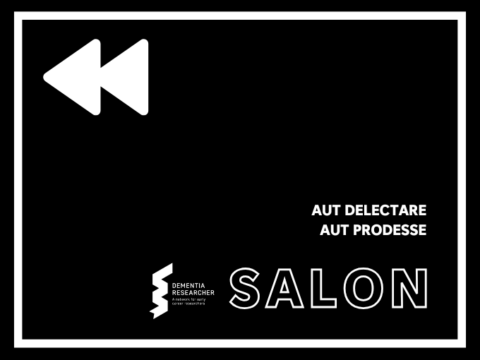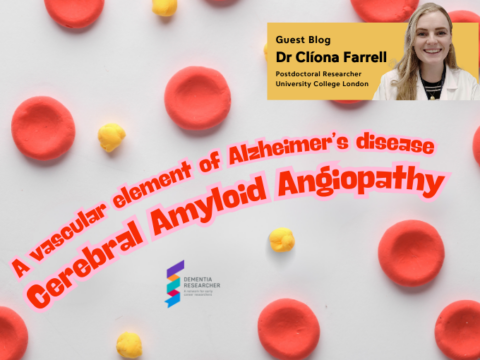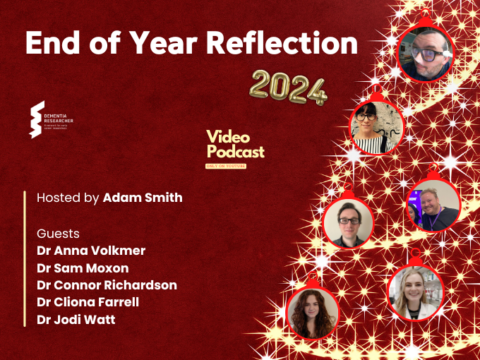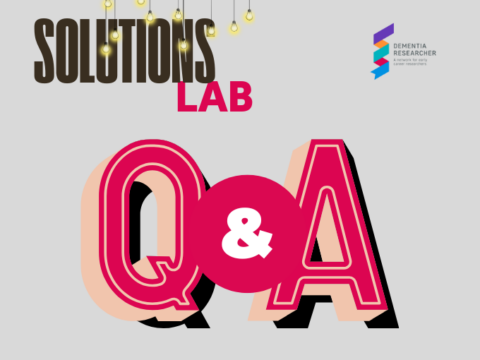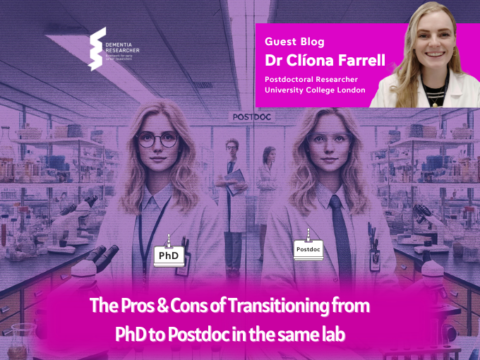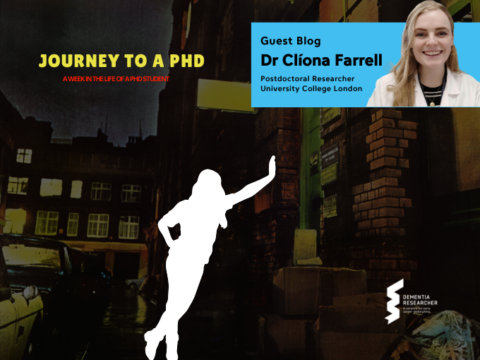Since the beginning of my PhD, through supervising students, or when teaching in undergraduate labs, I always get questions about how to get a PhD position, and the journey I took to get there. When I was an undergrad, I myself had no idea of (many things, but specifically) how to get a PhD, what a PhD entailed, and if a PhD was for me. In this blog and in blogs to follow, I hope to demystify the PhD process, from required experience, where to apply, and what a day in the life of a PhD student looks like.
Deciding if a PhD is the right career step for you is tricky, and one that I certainly battled with. No one I knew had ever done a PhD. From lectures during university, I had the vague understanding that they did research and published journal articles, but beyond that, I was a bit clueless.
So how did I end up doing a PhD? I’m from Ireland and apart from participating in the national “young scientist” competition during secondary school, my first real research experience was during the fourth and final year of my undergraduate degree – I studied neuroscience in Trinity College Dublin. Friends on my course and current colleagues from my lab spent their summers doing work experience in university research labs or with science companies. I never did any research placement outside of my course, for two reasons. Firstly, I spent much of my summers working to earn and save some money (which I mainly used to travel). Secondly, I had no idea how to find or access those opportunities. I’m still impressed every time I have work experience or summer students reach out to me, especially when they have researched funding schemes that they can apply to. I never had the initiative (or even knew that I could have the initiative) to explore opportunities outside of my degree. Now, as someone who helps to interview or recruit potential students, I see the value in these experiences on a CV. But personally, it wasn’t necessary to get to where I am.
I was surprised to find myself really enjoying my undergrad research project, and I particularly fell in love with the lab work side of things.Working with my hands is something I still love, and getting to think up solutions to problems was enjoyable for me.
But due to the mystery of it, I still wasn’t convinced if a PhD was for me. I chatted with my supervisor at the time and people who had been in the year ahead of me and learned about the jobs of research assistants. A research assistant is almost exactly what the role describes; they assist a researcher with their project, or work across multiple projects in a lab. They do experiments, collect data and are involved in the running of the lab. Sometimes they can participate in other lab activities like presenting and writing papers, but this depends on the group.
In the final months of my undergrad, I applied to a few advertised research assistant positions and was delighted to interview for and get a position in the Royal College of Surgeons in Ireland. Looking back, I think this was the best place I could have ended up. As well as making friends for life, I got to experience what it was like to actually work in a research lab. The lab was big and split into subgroups who worked on different topics. I worked in the neurodegenerative disease subgroup and worked on multiple projects in the 15-months I worked there. The first valuable thing I took from this job was becoming highly proficient in common lab skills like cell culture, mouse dissections and qPCR. Alongside this, I got to learn the dynamics of a lab and the role of different lab members within it; I started to understand the difference between postdocs and PhD students, and what a lab manager does. Next (and maybe more) valuable thing I learned was how to work in a team. Learning to communicate in a diverse team with different personalities taught me the importance of clear communication, not taking what people say about my science personally, and ultimately increased my confidence. I gained mentors and friends who gave me advice and recommendations for how to apply to a PhD, which felt like a decent part of the battle.
After half a year in my research assistant job, I knew I enjoyed research and wanted to pursue a PhD of my own. I also decided that I wanted to move to a new country so that I could get the life experience of a new city. At the time I started to apply, it was mainly PhD programmes that were advertised. These consist of a rotation year of mini projects followed by choosing a lab for the final PhD, and tend to be advertised almost a year in advance. I applied to these at institutions throughout Europe. Most required an application form, CV and cover letter/personal statement, with some asking for graduation certificates and university transcripts. I didn’t get interviews for any I applied for and sometimes didn’t hear back at all. After those few months, specific PhD projects began to be advertised on FindaPhD.com (from around December time for projects due to start the following September) – also all the time on the Dementia Researcher website. Other people I know have found positions through university websites or posts from group leaders on X.com. Moreover, some people write funding applications with a supervisor and have huge input in the design of their project. I only applied to funded advertised positions. I found these applications slightly easier to write as I could use my cover letter to really detail why I wanted THAT specific project and why I was really suited to THAT lab.
The first interview I was invited for was the PhD I did. I actually thought that the interview went really badly as I wasn’t expecting some of the questions (like how I would design an experiment to test a specific question), but a few days later I was offered the position. That was February 2020 and in very unexpectedly different circumstances of navigating a pandemic, I moved to London in September 2020! I must acknowledge that now when I am mentoring people applying for PhD positions, I can see how competitive it is and I was really lucky that with submitting about 10 applications in one year, I succeed in getting a position.
So, my journey took my from undergraduate to research assistant to PhD. But there is no one route, and my friends and colleagues have taken very different journeys to get here. Often, people will do a master’s degree before applying to PhD positions. I think that this can be especially good if your undergrad was shorter, as master’s research projects give you at least 3-4 months full time doing research. This can offer similar insights into a research lab, and you get to have intellectual input into your project and may get more of an opportunity to work on a project you are passionate about. Some master’s students (or research assistants) can get the opportunity to stay in the same lab for a PhD. Other friends of mine hailing from further afield, such as the USA, have worked as a research assistant, and then carried out their PhD part-time while continuing to work as a research assistant part-time. This can be an accessible way to avoid incredibly expensive university fees for non “home” PhD students. Other colleagues worked as research assistants for much longer before doing a PhD, sometimes working in multiple positions at different universities. And other friends of mine have worked outside of academia for some time before deciding that a PhD was for them.
Essentially, there are lots of paths you can take to a PhD, but hopefully sharing my journey will give you one example route.
One final thing I want to mention that you may have noticed is throughout my journey, I only applied to advertised positions. I never approached a lab for summer projects, research assistant positions, or PhD roles. I was always shy to contact specific PIs (and sometimes didn’t even know that was something I could do). Back then I felt a great deal of imposter syndrome about the thought of proposing my own research ideas, and just didn’t know how to start with this. Although this didn’t end up holding me back and I loved the topic of my PhD even though I wasn’t the one to write the project, now looking from the other side, I see the benefits of putting yourself out there. If there is someone who you would really love to work with, or just ask questions to reach out to them. It is definitely something that I am actively trying to do more and more. In my experience, people are usually flattered to be approached and are glad to let you know if they have opportunities for you or can suggest alternative options or funding schemes with which you could apply to. And the worst thing someone can say is no!
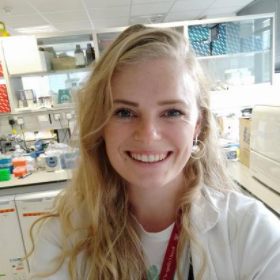
Clíona Farrell
Author
Dr Clíona Farrell is a Postdoctoral Researcher in the UK Dementia Research Institute at University College London. Her work focuses on understanding neuroinflammation in Down syndrome, both prior to, and in response to, Alzheimer’s disease pathology. Originally from Dublin, Ireland, Clíona completed her undergraduate degree in Neuroscience in Trinity College, and then worked as a research assistant in the Royal College of Surgeons studying ALS and Parkinson’s disease. She also knows the secret behind scopping the perfect 99 ice-cream cone.

 Print This Post
Print This Post

